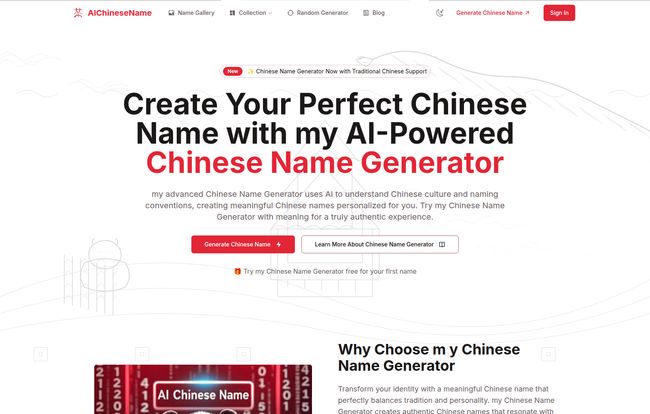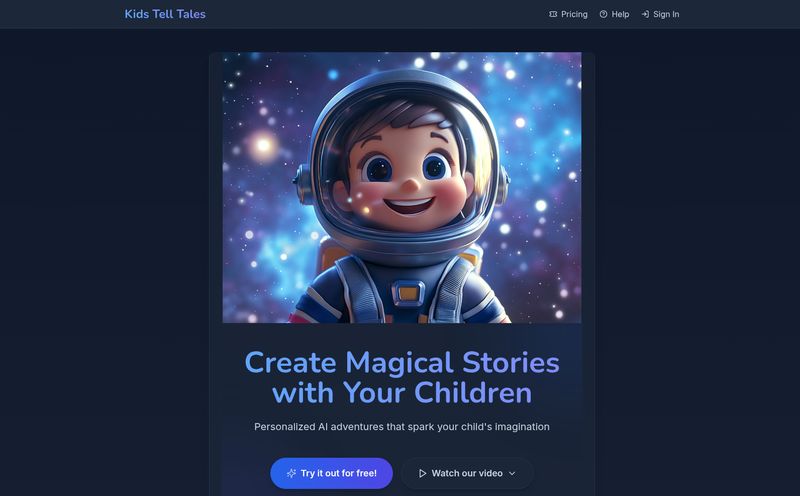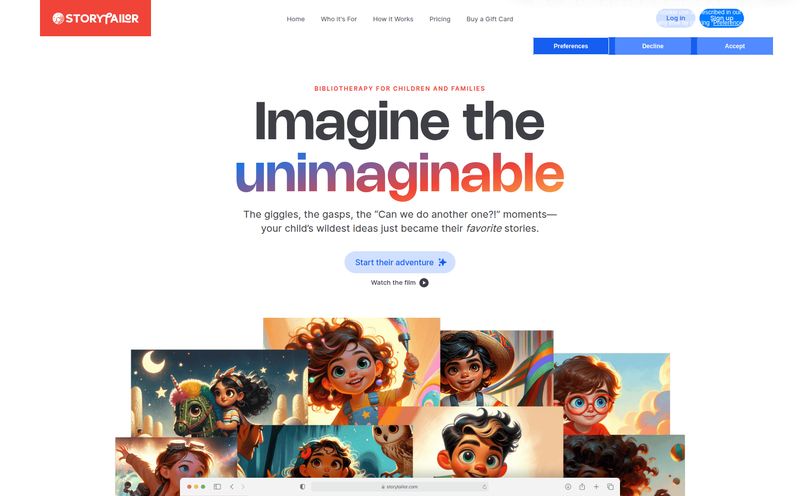I’ve been in the SEO and digital marketing space for years, and if there’s one thing I’ve learned, it’s that connection is everything. Whether you're connecting with a search engine algorithm or, more importantly, a human being on the other side of the screen. This is especially true when you’re bridging cultures.
So, let's talk about names. Specifically, Chinese names. I’ve seen my fair share of cringey, direct-translation names that cause more confusion than connection. You know the ones. They sound clunky, miss the mark, and scream “I used a free, ten-year-old online translator.” It’s the digital equivalent of wearing a t-shirt with a nonsensical phrase in a language you don’t speak.
That's why when I stumbled upon AIChineseName, I was intrigued. An AI-powered generator that promises not just a name, but a culturally authentic one? One with meaning, context, and a personal touch? Okay, you have my attention. I had to see if it lived up to the hype.
More Than Just a Translation
First off, let’s get something straight. A Chinese name isn't just a phonetic equivalent of your English name. That’s a common mistake. Each character carries its own weight, its own history, and its own poetry. The combination of characters creates a new layer of meaning entirely. It’s an art form. A name like 'Dragon' might sound cool in English, but directly translating it could come across as arrogant or just plain silly in a different cultural context.
This is where the idea of an 'AI Chinese Name Generator' gets interesting. It’s not just about matching sounds. It's about understanding thousands of years of tradition, symbolism, and linguistic nuance. It’s about crafting something that feels right, that tells a story about your personality or aspirations. A real challenge for a machine, right?
Meet AIChineseName: Your Personal Naming Guru
AIChineseName positions itself as the solution to this very problem. It’s not your run-of-the-mill generator. It’s a tool designed to provide a meaningful Chinese name that balances tradition with your personal identity. The whole vibe of the site, with its cool panda mascot, feels more like a friendly guide than a sterile piece of software. It’s clear they’re aiming for a personal connection from the get-go.
The platform uses AI that’s been trained on Chinese naming conventions and cultural details. The goal is to give you a name that doesn’t just sound good, but is also appropriate and respectful of the culture. Whether you need a name for professional reasons, personal growth, or even a fantasy character for your next novel, this tool seems to have you covered.

Visit AIChineseName
The Features That Actually Matter
So what’s under the hood? I took it for a spin, and a few things really stood out to me. It's not just a box where you type your name and get a random output.
- Deep Meaning & Character Analysis: This is the big one. It doesn’t just give you the characters. It breaks down why it chose them. You get a detailed explanation of each character's meaning, its cultural significance, and how they work together. For instance, the name suggested for 'Emma' was 艾玛琳 (Ài Mǎ Lín), with '艾' representing beauty and elegance, and '琳' symbolizing jade and purity. That's a world away from a simple phonetic guess.
- Pinyin & Audio Pronunciation: Let's be honest, most of us will butcher the pronunciation at first. The inclusion of clear Pinyin (the romanization system for Mandarin) and an audio guide is a godsend. You can actually hear how your new name is supposed to be said, which is huge for building confidence.
- Multiple Style Options: I love this part. You can choose between different styles—modern, traditional, or even fantasy. This shows a deep understanding of user intent. A business professional in Shanghai needs a different kind of name than an author creating a character for a Xianxia-inspired story.
- A Legit Chinese Name Certificate: This was a delightful surprise. Once you find your name, you can generate a beautiful certificate that details its characters, meaning, and cultural context. It’s a small touch, but it makes the whole experience feel more official and special. It’s something you can actually keep and show people.
The generator also supports both simplified and traditional Chinese characters, which is a crucial detail for anyone interacting with different Chinese-speaking regions like mainland China, Taiwan, or Hong Kong.
Breaking Down the Cost
Alright, the all-important question: what’s this going to set me back? The pricing structure is refreshingly simple and transparent. It's not some confusing subscription model designed to trap you.
| Plan | Price | Key Features |
|---|---|---|
| Free | $0 | 3 Name Generation Credits, Detailed Analysis, Name Certificate, Pinyin, Cultural Context. |
| Premium | $5 (One-time) | 10 Name Generation Credits and all features from the free plan. |
Honestly, this is more than fair. The free plan gives you enough credits to genuinely try the service and see if it works for you. And the premium plan? Five bucks. That's it. For a one-time payment, you get 10 credits and a name you could potentially use for the rest of your life. In a world of SaaS subscriptions, a simple one-off payment for a quality service is a breath of fresh air. It’s less than my morning latte.
My Honest Take on AIChineseName
After playing around with it, I've got some thoughts. No tool is perfect, but this one gets a lot of things right.
The biggest advantage is, without a doubt, the cultural authenticity. The AI seems to have a genuine grasp of the art of naming, providing options that are both beautiful and meaningful. The detailed explanations are the cherry on top, transforming it from a simple generator into an educational experience. You don't just get a name; you learn something.
On the flip side, the only real 'con' is that the free credits are limited. You get three shots to find a name you like. For most people, that's probably enough. But if you're particularly picky, you might find yourself needing to upgrade. Then again, for the price of a coffee, the premium plan solves that problem pretty quickley.
Frequently Asked Questions
I saw some common questions on their site, and I’ll give you my take on them.
How does the generator actually create the names?
It uses smart AI to look at old Chinese traditions, the meanings of different characters, and how they sound. It's not random. It’s a calculated process that blends your preferences with cultural rules to create something unique.
Is it really better than just translating my name?
Yes. A thousand times, yes. Simple translation often results in names that are meaningless or awkward. This tool builds a name from the ground up based on cultural context and personality, which is how Chinese names are actually chosen.
How accurate is it?
From what I've seen, it's very accurate. Because it’s trained on traditional naming data and cultural details, it ensures the character combinations are meaningful and sound good together. It’s way more reliable than basic generators.
Can I use this for a business name?
Absolutely. The generator can create names that fit a professional image, considering the meaning and impression you want to convey. It's a great starting point for branding.
How long does it take to get a name?
It's incredibly fast. You enter your preferences, and you get a beautiful, detailed name suggestion in just a few moments.
Final Thoughts
So, is AIChineseName worth your time? In my opinion, absolutely. It’s a powerful, thoughtful, and surprisingly personal tool that solves a real problem for anyone looking to connect with Chinese culture on a deeper level.
It’s a perfect example of AI used right—not to replace human connection, but to enhance it. It's like having a knowledgeable and friendly cultural consultant in your pocket. For the price—or even for free—the value you get is outstanding. If you’re in the market for a Chinese name, I’d say give it a shot. You might just be surprised by what you discover.



